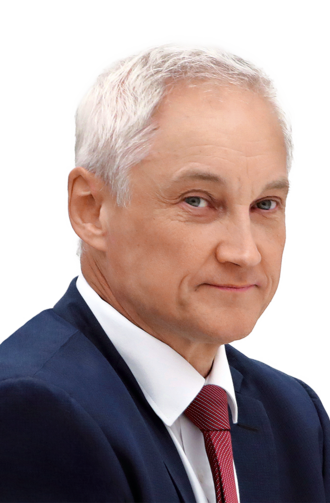Sergey Belousov, a 65 years old civilian with a background in economics and mathematics has been nominated by Russian President Wladimir Putin as the country’s next Defense Minister.
The surprise announcement also signifies the dismissal of Sergei Shoigu, the 68 years old General who had held the post since 2012 and had been entrusted with overseeing the country’s war effort in the Ukraine conflict.
Shoigu, a five-star army general with very close ties to Wladimir Putin has held the post of Minister of Emergency Situations from 1991 to 2012 before becoming Defense Minister after serving only a few months as Governor of Moscow Oblast.
As Defense Minister, he also held the Chair of the Council of Ministers of Defense of the Commonwealth of Independnat States. He will remain a close advisor to Wladimir Putin as Secretary of the Security Council, the advisory body that is key to assisting the President on state defense and security policies.
Coming as a complete surprise to all within and outside of Russia, the appointment of Sergey Belousov signifies a particular attention being brought to the nation’s economy as the war with Ukraine is still raging in its third year.
Pending Parliamentary confirmation, the return of Andrey Belousov takes place as President Putin appoints its first cabinet since being re-elected for its fifth term as President of the Russian Federation.
Andrey Belousov who has already enjoyed a rich civil service career at the highest level of Russia’s governement, included Minister of Economic Development in 2012, First Deputy Prime Minister of Russia in 2020, and also as a Presidential assistant for economic affairs, walks into a Defense Ministry which has failed for more than three years to secure a victorious conclusion to what had been designated a special operation – in fact an all-out war – being waged by Russia against Ukraine.
Enjoying an unemployment rate below 3% early this year, the Russian economy has proven extremely resiliant to the combination of economic sanctions imposed by the west and the cost incurred by a war in which vast quantities of material and human ressources have been mobilised – and destroyed.
The country war economy had been well underway to replace the war material lost or damaged in battles even demonstrating the ability to outproduce threefold the western countries supplying Ukraine in artillery ammunition production. Artillery ammunition -or its lack thereof, has recently proven key to winning battles on the ground.
Moreover, on the battlefield, the Russian Armed Forces which had surprised everyone by its poor performance aginst Ukrainian forces particularly in the first year of the war, recently appeared reinvigorated having learned bitter lessons and stabilized its strategy along the entire front line, enjoying superior artillery firepower in order to achieve one small incremental gain at a time.
In light of these positive indicators shining in favor of the leadership under Shoigu, very little suggested a change in favor of a pure economist was in the making a the Defense Ministry.
President Putin enacted this key change while taking care as a precaution, of keeping the military chain of command untouched allowing General Valery Gerasimov to remain as Head of the General Staff of the Armed Forces.
After all, the arrival of Sergey Belousov as Defense Minister will decisively allow the proper planning, budgeting and production of military material to be orchastrated on purely economics ground. This is done primarily to allow Wladimir Putin to pursue the numerous weapons systems modernization prgrammes already underway while at the same time, increasing the production requested by the armed forces to weaken militarily Ukraine’s armed forces until final victory.
The leading modernization programmes range from the procurement in significantly large number of the Armata T-14 tanks, the Sukhoi Su-57 Stealth combat aircraft, the Borei class submarines, the A-100 Reconnaissance aircraft, the Kinzhal Hypersonic missiles, the S-500 air defense suystem and consolidating the large scale production base for military drones.
The successful outcome of these various programmes will allow Putin to significantly increase the strategic ‘deterrent’ value of combat-ready modernized Russian Armed Forces particularly towards the West the very moment the war with Ukraine finds its conclusion.
It must be noted that these programmes have not necessarily been factored in by the Russian high command in its effort to achieve victory in the current Ukraine conflict. In fact we anticpate that the Russian high command is making plans to win the war in Ukraine with the current military technology it has fielded as the war began in February 24th 2022. This is approach is validated by the increasing quantities of artillery and large aerial bombs that have demonstrated in recent months, the ability to weaken Ukraine’s manpower resources along the entire front line.
